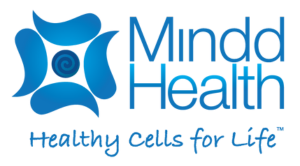And you should know that many of these toxic ingredients can be hidden in health foods, protein powders, meal replacements, beverages, grooming products, and even household cleaners! So, peek in your cupboards and check those ingredients lists for the following:
Sucralose, also known as Splenda, is a ubiquitous artificial sweetener and it is often marketed as a product of real sugar. However, it is not entirely that simple or safe. Sucralose is sugar attached to the well-known toxin, chlorine. Accordingly, sucralose introduces large doses of chlorine to your body, thereby damaging beneficial bacteria in your gut, producing digestive and immunity issues. And while Stevia (a natural and healthy plant derivative) may be recommended to diabetics as a healthy sugar alternative for maintaining blood sugar levels, it may also have the same effect as Sucralose causing insulin levels to spike. This may happen due to the body being programmed to produce insulin in response to sweetness. Meanwhile, aspartame which is most commonly added to diet soda is another artificial sweetener to avoid.
3. Chlorine and Chloramine
Regular exposure to chlorine and chloramine can damage your skin as well as your gut health. Found in swimming pools, drinking water, and even dishwater, chlorine gas can be inhaled many ways in everyday life. Consider adding chlorine filters to your faucets and shower heads to reduce your exposure to these toxins.
4. Conventional Dairy Products
Conventional dairy products have been found to contain dangerous pharmaceutical ingredients like estradiol, antibiotics, growth hormones, statins, and anti-depressants! Many of these enter the animal via its diet and skim, or low-fat dairy varieties are not necessarily safer or healthier for you. Instead, opt for organic or local dairy products only. Otherwise, avoid dairy products entirely to protect your body from these destructive toxic ingredients.
5. Flouride
Fluoride kills off beneficial bacteria in your gut which is a recipe for poor gut health! Now, the most famous source of fluoride is toothpaste followed by drinking water (in some regions) because fluoride was once believed to be necessary to strengthen your teeth and bones. However, clay, essential oils, magnesium, probiotics, and vitamins D and K have been shown to be much better for not only your teeth and bones but also your overall health.
6. Glyphosate
Glyphosate is used in herbicides and pesticides which are sprayed on crops to kill weeds as well as harvested grains to ward off pests. Nevertheless, glyphosate gets into the food you eat, and it cannot be washed off. Such foods may be referred to as containing genetically modified organisms, or GMOs. GMOs damage your gut and increase your risk of cancer, so eat organic produce as much as possible and avoid some of the most common GMO foods such as alfalfa, beet sugar, canola, corn, cottonseed, papaya, soy, and zucchini.
7. Hydrolyzed Vegetable Protein (HVP)
The soy-based meat, hydrolyzed vegetable protein or HVP, is high in soy, glutamate, phytoestrogens, and it is also likely genetically modified. Sometimes referred to as natural vegetable protein, HVP can cause functional issues with your thyroid, adrenal glands, and gut.
8. Polyethylene Glycols (PEGs)
Polyethylene glycols, found in grooming products, especially for skin care, can disrupt your hormones and increase your risk of developing breast cancer. These are typically listed among ingredients as "PEG-#" where the "#" is a number. Unfortunately, PEGs are not banned in all countries throughout the world; so, it could very well be in one of the personal care products you use every day.
9. Propylene Glycol
Propylene glycol is a chemical commonly found in personal care products such as toothpaste, deodorant, lotion, shampoo, etc. Predominantly attacking the liver and kidneys, propylene glycol increases toxicity within your body. Use certified organic personal care products instead or make your own body care products using essential oils.
10. Wheat Flour
This common ingredient may deceive you as a healthy alternative to bleached flour. Nevertheless, it is often just a pseudonym for unbleached white flour! Thus, "wheat flour" is quite different from "whole wheat" meaning it is high in preservatives, glyphosate, gluten, and other anti-nutrients that attack your gut health, nutrient absorption, and blood sugar level. So, aim for whole grain or almond flour varieties only.
So, guarding gut health begins with a close evaluation of the diet with which an Integrative Health Practitioner can undoubtedly assist.
 Stay connected and keep up to date with the latest in Functional Medicine
© 2025 | mindd.org | All rights reserved
Stay connected and keep up to date with the latest in Functional Medicine
© 2025 | mindd.org | All rights reserved

